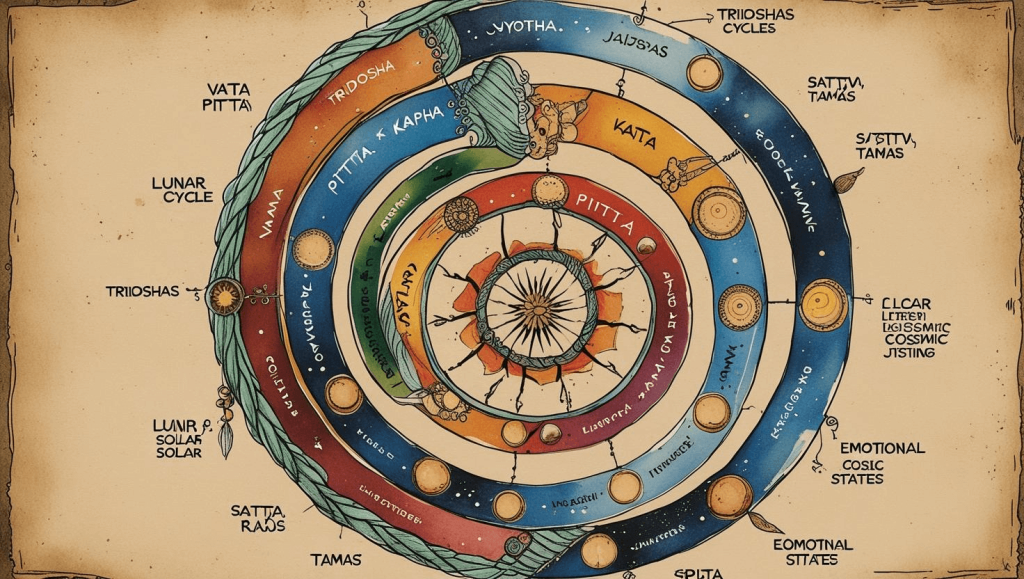🌸Holistic Science and the Feminine Grammar of Knowledge
Shunya Axis | Shakti Sutra Series | Foundational Post 2 of 9
🌸 Core Premise
This post re-frames holism not as vague spirituality or soft science, but as a rigorous, embodied, feminine grammar of knowledge. It explores the wisdom of:
- Tridosha (body-mind constitution),
- Panchakarma (detox-healing cycles),
- Rasa Shastra (alchemy of transformation),
- Jyotish (cosmic rhythms),
…and their deep relationships with psychology, mathematics, and ecology.
Here, we recover an integrated knowledge system — not split into disciplines, but flowing like a living being — as in the feminine worldview.
🧭 Structure
1. Opening Reflection: The Feminine as Weaver
“When the body, mind, and cosmos speak in harmony — that is not alternative medicine. That is ancient intelligence.”
Introduce the idea that true integration is not optional — it is foundational. The feminine worldview never separated the healer from the scientist, the mystic from the mathematician.
2. What Reductionism Missed
- Modern science split reality into compartments: chemistry ≠ medicine, astronomy ≠ psychology.
- Feminine systems didn’t — Ayurveda spoke of mental states through bodily humors; Jyotish linked life events to cosmic timing.
- Integration was not a metaphor. It was methodology.
3. Examples from Indian Systems
- Tridosha as a framework for body-psychology balance.
- Panchakarma as systemic reset, like a recursive algorithm.
- Rasa Shastra as alchemical logic: transformation through context, not force.
- Jyotish not as superstition, but as rhythm science — understanding when to act, not just what to do.

4. Reclaiming the Feminine Grammar
- These are not esoteric relics. They are pre-disciplinary sciences.
- Feminine grammar values relationships, cycles, context, and long-term memory — vs metrics, events, isolation, or precision.
- This grammar is missing in climate science, mental health, AI design, and beyond.
5. Closing: The Return of the Weaver
“The world does not need more silos. It needs grandmothers in labs.”
A call to researchers and seekers to return to the feminine grammar of wholeness, not as nostalgia, but as precision for the soul.
